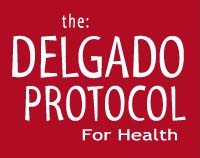Controlling DHT: The Key To Preventing Acne, Prostate Cancer and Hair Loss
Dihydrotestosterone, or DHT, is sex hormone that is manufactured from testosterone. It is often villainized for the role that it plays in hair loss, however, it is an essential hormone and harmless when maintained in a healthy range. Understanding DHT, the roles that it plays in the body, how it’s created, and how to maintain it in ideal levels, is the key to protecting prostate and heart health, maintaining a full-head of hair and preventing acne.
DHT Basics
 DHT is created from testosterone, but it’s far more active, and five times more potent in the body than testosterone. Although DHT is found in both males and females, it is found in higher amounts in males. It is often referred to as a male sex hormone because it plays a significant role in the development and maintenance of many male sexual and physical characteristics.
DHT is created from testosterone, but it’s far more active, and five times more potent in the body than testosterone. Although DHT is found in both males and females, it is found in higher amounts in males. It is often referred to as a male sex hormone because it plays a significant role in the development and maintenance of many male sexual and physical characteristics.
DHT Benefits and Risks
When DHT is kept within a normal range it is beneficial and helps to enhance libido, improve sexual function, boost memory, and maintain cognitive capabilities. However, when DHT levels climbs too high, it promotes free radicals damage to the cells and DNA, and increases the risk for both male pattern baldness, and benign prostatic hyperplasia (BPH). The fact that men have naturally higher DHT levels than women, explains why balding occurs far earlier in life and far more frequently in men. High DHT levels may also increase the risk for cardiovascular disease, and promote the growth of prostate cancer cells.[i] [ii]
Symptoms of High DHT:[iii]
- Acne
- Hair loss on the crown area
- Increased facial and body hair
- Aggression
- Excessive sweating
- Sleep apnea
- High red blood cell count
- High blood pressure[iv]
- Prostate growth
- Chronic inflammation
Ideal DHT Levels
As mentioned above, there are advantages to DHT, but too much DHT is not a good thing at all. Ideally, men should maintain DHT levels in the 40-50 ng/dL reference range — and anything over 75ng/dL should be cause for concern.[v] The ratio of hormones is also important, and ideally you want your DHT levels to be in a one-to-three ratio with testosterone (testosterone levels that are at least three times higher than DHT levels).
Preventing The Conversion of Testosterone Into DHT
 Testosterone can go down different pathways in the body. One of the pathways causes testosterone to be converted into estrogen, and another pathway causes it to combine with an enzyme called 5-alpha-reductase and the combination causes DHT to be created. Beta-sitosterols are plant-based compounds that help to block 5-alpha-reductase reactions, which in-turn, helps to reduce the conversion of testosterone into DHT and thereby lowers DHT levels.[vi]
Testosterone can go down different pathways in the body. One of the pathways causes testosterone to be converted into estrogen, and another pathway causes it to combine with an enzyme called 5-alpha-reductase and the combination causes DHT to be created. Beta-sitosterols are plant-based compounds that help to block 5-alpha-reductase reactions, which in-turn, helps to reduce the conversion of testosterone into DHT and thereby lowers DHT levels.[vi]
Lowering DHT With Supplements
DHT-Block is a highly effective supplement for reducing DHT levels. It contains a potent dose of beta-sitosterols, and a proprietary blend of herbs that help to block the production of DHT, to clear several colon and prostate toxins, and to protect cells and DNA from free radical damage. DHT-Block also helps to neutralize and clear toxic estrogens from the body. This is beneficial because elevated estrogen levels in men is an increasingly common problem that can lead to an array of symptoms (acne, weight gain, irritability, man boobs etc.), and markedly increase the risk for prostate cancer.[vii] http://www.delgadonaturals.com/dht-blocker/
Lifestyle Tips for Controlling DHT Levels
 Consume a whole-foods based diet, high in vegetables and fruits and moderate in wholegrains, beans, legumes, nuts and seeds. Pumpkin seeds and green tea are both particularly beneficial for reducing DHT and should be consumed regularly. You can also help reduce DHT by increasing sex-hormone-binding-globulin (SHBG) levels, because SHBG binds to and deactivates DHT. You can increase SHBG levels naturally by eliminating animal products and saturated fats from your diet.[viii] Finally, attain a healthy body weight and engage in slow and steady exercises such as yoga and jogging because they help reduce the formation of DHT.
Consume a whole-foods based diet, high in vegetables and fruits and moderate in wholegrains, beans, legumes, nuts and seeds. Pumpkin seeds and green tea are both particularly beneficial for reducing DHT and should be consumed regularly. You can also help reduce DHT by increasing sex-hormone-binding-globulin (SHBG) levels, because SHBG binds to and deactivates DHT. You can increase SHBG levels naturally by eliminating animal products and saturated fats from your diet.[viii] Finally, attain a healthy body weight and engage in slow and steady exercises such as yoga and jogging because they help reduce the formation of DHT.
[i] http://www.usrf.org/news/BPH_Prevention/DHT_Rev.pdf
[ii] http://hyper.ahajournals.org/content/57/4/681
[iii] http://www.health.harvard.edu/mens-health/testosterone-prostate-cancer-and-balding-is-there-a-link-thefamilyhealth-guide
[iv] http://hyper.ahajournals.org/content/57/4/681
[v] https://www.ncbi.nlm.nih.gov/pmc/articles/PMC4169352/
[vi] http://nutrientjournal.com/beta-sitosterol-5-alpha-reductase-inhibitor-reduces-ldl/
[vii] https://www.ncbi.nlm.nih.gov/pmc/articles/PMC1477605/
[viii] https://academic.oup.com/jcem/article-lookup/doi/10.1210/jcem.85.1.6291



